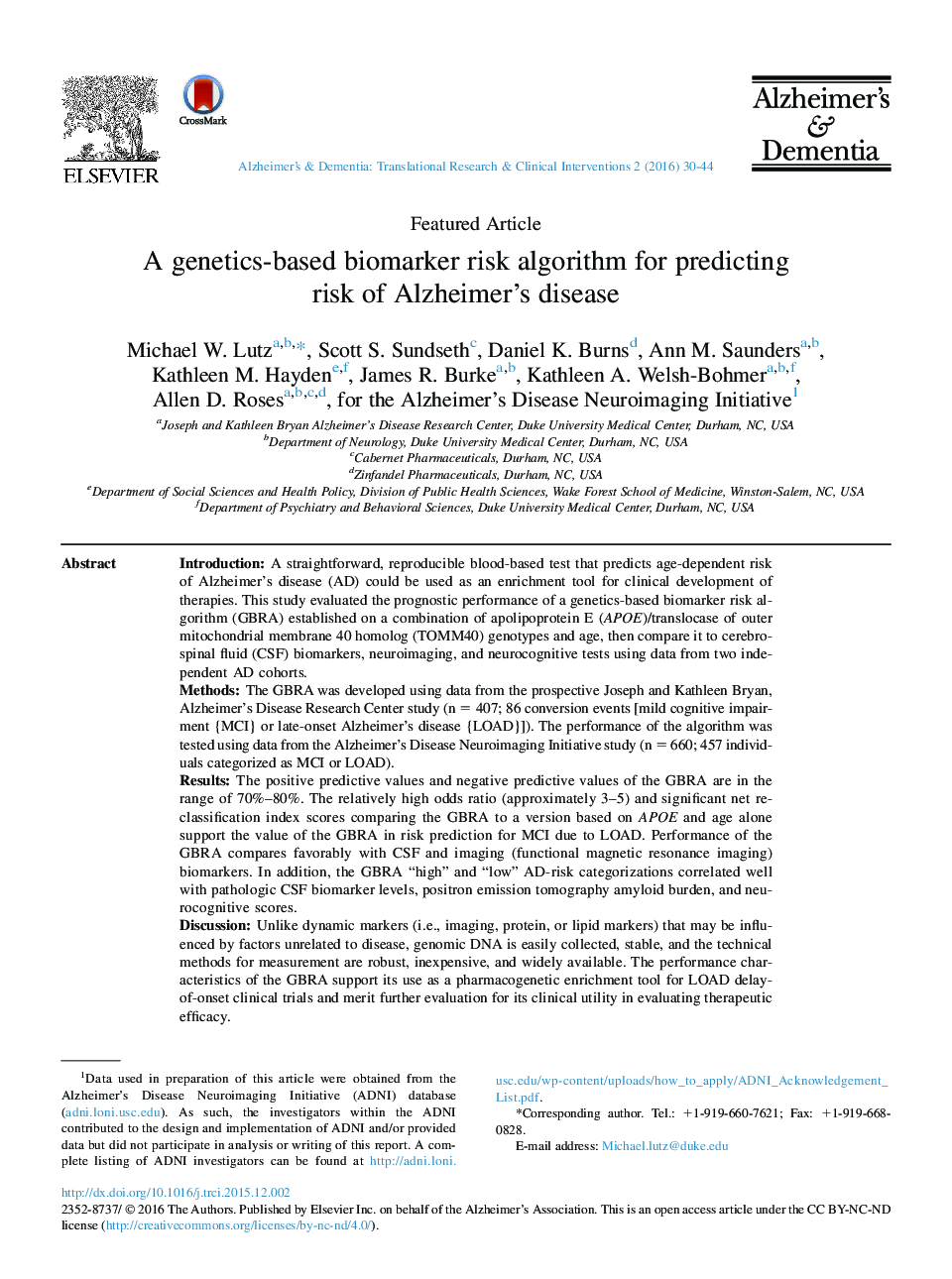| Article ID | Journal | Published Year | Pages | File Type |
|---|---|---|---|---|
| 3032091 | Alzheimer's & Dementia: Translational Research & Clinical Interventions | 2016 | 15 Pages |
IntroductionA straightforward, reproducible blood-based test that predicts age-dependent risk of Alzheimer's disease (AD) could be used as an enrichment tool for clinical development of therapies. This study evaluated the prognostic performance of a genetics-based biomarker risk algorithm (GBRA) established on a combination of apolipoprotein E (APOE)/translocase of outer mitochondrial membrane 40 homolog (TOMM40) genotypes and age, then compare it to cerebrospinal fluid (CSF) biomarkers, neuroimaging, and neurocognitive tests using data from two independent AD cohorts.MethodsThe GBRA was developed using data from the prospective Joseph and Kathleen Bryan, Alzheimer's Disease Research Center study (n = 407; 86 conversion events [mild cognitive impairment {MCI} or late-onset Alzheimer's disease {LOAD}]). The performance of the algorithm was tested using data from the Alzheimer's Disease Neuroimaging Initiative study (n = 660; 457 individuals categorized as MCI or LOAD).ResultsThe positive predictive values and negative predictive values of the GBRA are in the range of 70%–80%. The relatively high odds ratio (approximately 3–5) and significant net reclassification index scores comparing the GBRA to a version based on APOE and age alone support the value of the GBRA in risk prediction for MCI due to LOAD. Performance of the GBRA compares favorably with CSF and imaging (functional magnetic resonance imaging) biomarkers. In addition, the GBRA “high” and “low” AD-risk categorizations correlated well with pathologic CSF biomarker levels, positron emission tomography amyloid burden, and neurocognitive scores.DiscussionUnlike dynamic markers (i.e., imaging, protein, or lipid markers) that may be influenced by factors unrelated to disease, genomic DNA is easily collected, stable, and the technical methods for measurement are robust, inexpensive, and widely available. The performance characteristics of the GBRA support its use as a pharmacogenetic enrichment tool for LOAD delay-of-onset clinical trials and merit further evaluation for its clinical utility in evaluating therapeutic efficacy.
